He Quit Google to Sell Samosas. Today, His Fans Include Movie Stars!
What inspired him? The fact that the delicacies he ate at his home weren't widely available and that his mother happened to be the best chef!
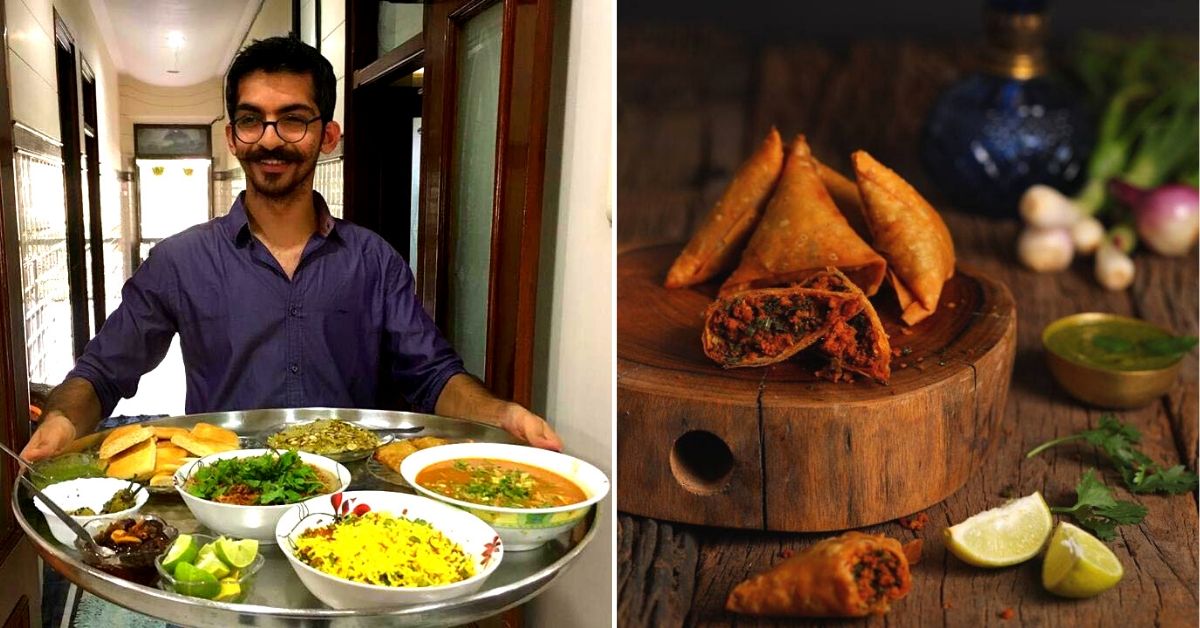
We often underestimate the power of food. It isn’t just something that fills our stomach, but a source of joy associated with some of our most precious memories. The shared love of eating brings us closer and connects us in ways that words often fail to describe.
For Munaf Kapadia, the love and appreciation for his mother’s home-cooked food only grew over the years. Belonging to the Dawoodi Bohra community, Munaf noticed that the delicious dishes he ate at home like the smoked keema samosa, kaju chicken, and nalli nihari, weren’t widely available.
He decided to host a dining experience at home called ‘The Bohri Kitchen’ (TBK) for people to taste the delicious food. Munaf sent out a few emails to friends and acquaintances explaining what the dining experience would entail. To his surprise, within two hours, he got a call from an acquaintance who wanted to come over with six of her friends. After being served a gratifying seven-course meal, the guests left his home with a smile on their faces, showering Munaf and his mother, Nafisa, with praises.
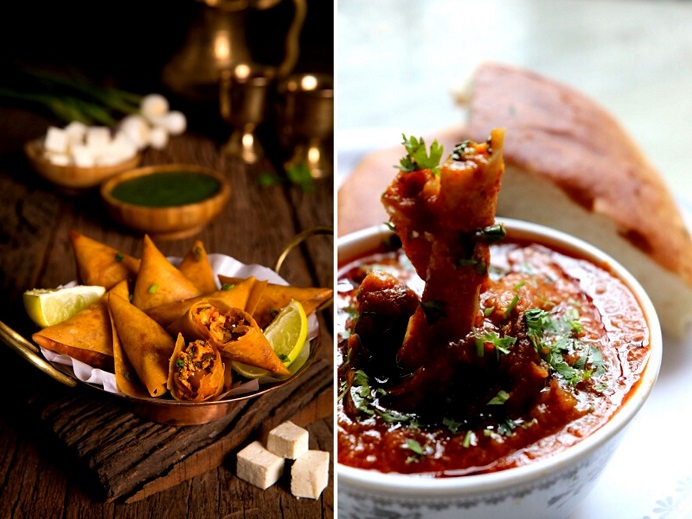
This was six years back in November 2014 on Munaf’s birthday.
“For me, my mum’s reaction was the most exciting part of the whole dining experience. Money was not a factor at that point. Also, this was an interesting experiment where I wanted to understand if I could create a brand online,” recalls the 31-year-old.
Making Dawoodi Bohra Cuisine Available to All
After receiving great feedback, they began to host experiences at home every week for eight people at a time. With time, this dining experience became more exclusive because it was hosted at his home.
TBK soon became the talk of the town. There was a long list of people who wanted to experience it and journalists from all over who wanted to cover it.
“We had become a sensation and got a lot of exposure from the local press. We even got press from BBC who came to shoot at our home, a segment which was telecast globally for eight minutes. That was a big thing for us,” says Munaf.
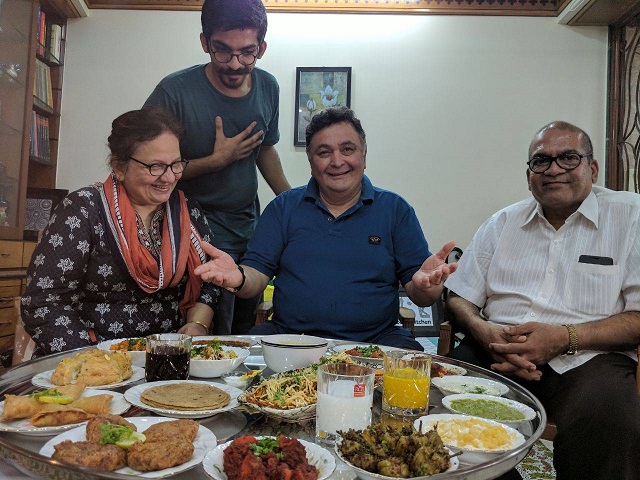
He realised the potential and officially founded TBK in August 2015. Before that, for nearly five years, he had been working at Google as an Account Strategist.
In the years that followed, TBK gained popularity among Mumbaikars with over 100+ dishes in a menu that showcases the Dawoodi Bohra cuisine. They set up two kitchens to deliver food along with offering catering services and found admirers in film stars like Rani Mukherjee, Rishi Kapoor, and Hrithik Roshan.
However, the journey has not been a smooth one. Munaf has overcome several roadblocks to run his business. Now, he’s writing a book commissioned by Harper Collins titled, The Guy Who Quit Google to Sell Samosas, which is slated for release later this year.
Tantalising Tastebuds Through Their Cuisine
Learning about traditional cuisine helped Munaf reconnect with his roots.
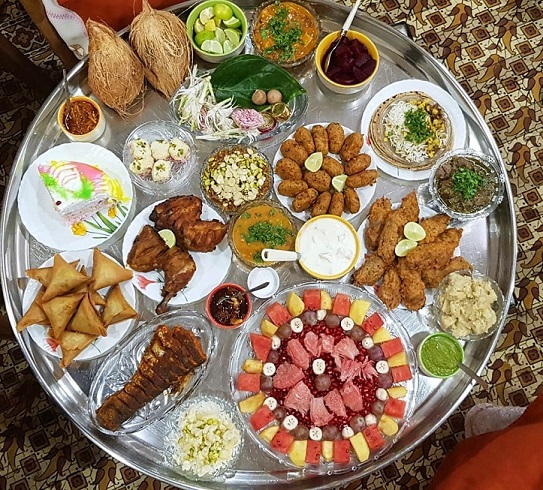
The Dawoodi Bohra community is a branch of Shia Islam, that traces its roots to the Middle East, especially Yemen. Munaf goes on to explain how and a plate with a diameter of 3.5 feet came to be used.
“The Middle East has large deserts. This large plate was used to feed about seven to eight people in these areas. By circling the plate, the people ensured that sand did not land on their plates. Also, since it was a desert and water was scarce, it helped conserve the resource,” says Munaf.
Currently, TBK has two delivery kitchens, and until March, they hosted their exclusive dining experience three times a month, priced between Rs 1,500-3,500 per person. About 40 per cent of the dishes are vegetarian, prepared by cooks trained by Munaf’s mum.
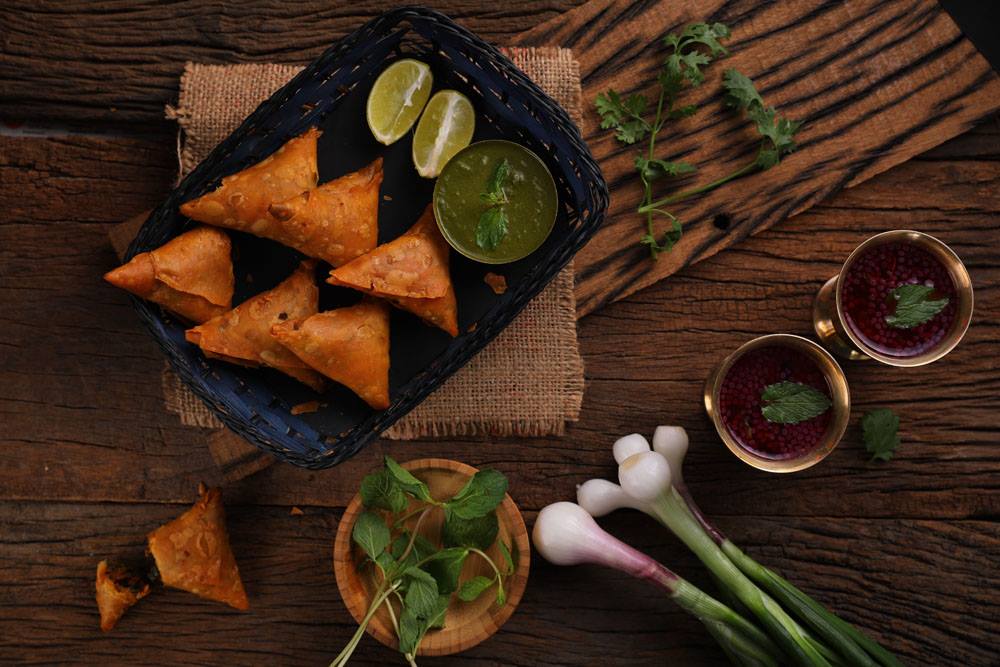
Ravinarayan Sahu is a regular, who gets excited at the mere mention of TBK. The 45-year-old first heard about TBK from friends while looking for caterers for an event at Axis Mutual Funds, where he works as the Deputy Vice President. He enjoyed the food so much that he even ended up ordering from there for his son’s birthday.
“Everyone loved the food, and the kids loved the dal samosas. My personal favourites are the chicken biryani, chicken cutlet, and the chicken malai seekh biryani, which we tried in our office last Diwali. Ab kya bolu, soch ke hi muh mein paani aa raha hai,” smiles Ravinarayan.
He’s also bought a jar of the khajoor dry fruit chutney that TBK retails, finding its sweet and sour flavours as the perfect accompaniment to dhokla or cutlets. Ravinarayan is also a fan of the doodhi ka halwa.
Munaf has also catered to a star-studded affair. He got a call from Aditya Chopra, who wanted him to provide food for actor Rani Mukherjee’s birthday. Munaf sent in the special thals for the meal and ensured they tasted the best of the traditional cuisine.
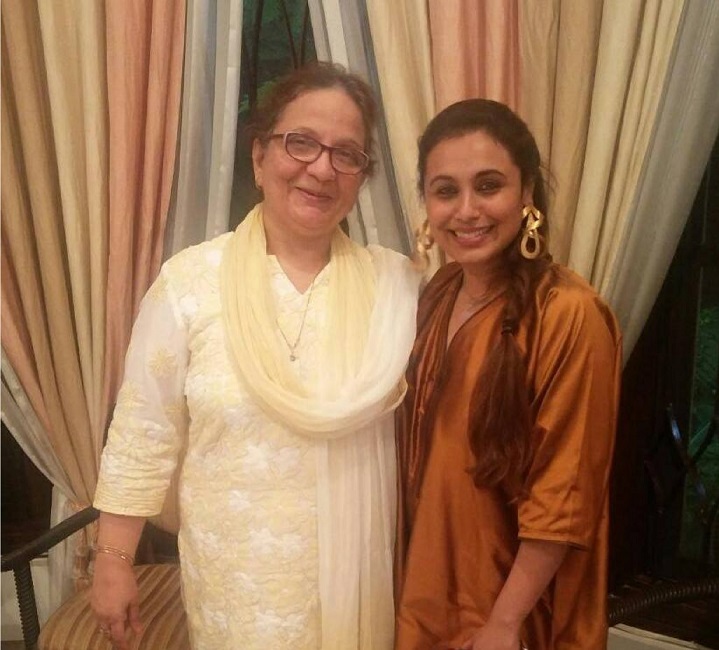
There is also the travelling thal concept where TBK sends their trained staff along with the special thals to cater to weddings. Munaf recalls a wedding in Perur where he sent 30 thals and fed over 300 people! TBK has also catered in buffet style, including over 5,000 people at a wedding.
Life before The Bohri Kitchen
Although managing a business in the food industry was not on his mind, Munaf always had an entrepreneurial bent of mind.
He pursued a BBA degree in Marketing from Narsee Monjee College of Commerce and Economics in Mumbai from 2006-2009. Soon after, he finished an MBA degree from Narsee Monjee Institute of Management Studies.
Fresh out of college in 2011, Munaf worked with Wrigley’s as a management trainee and became one of the few area Managers in the country.
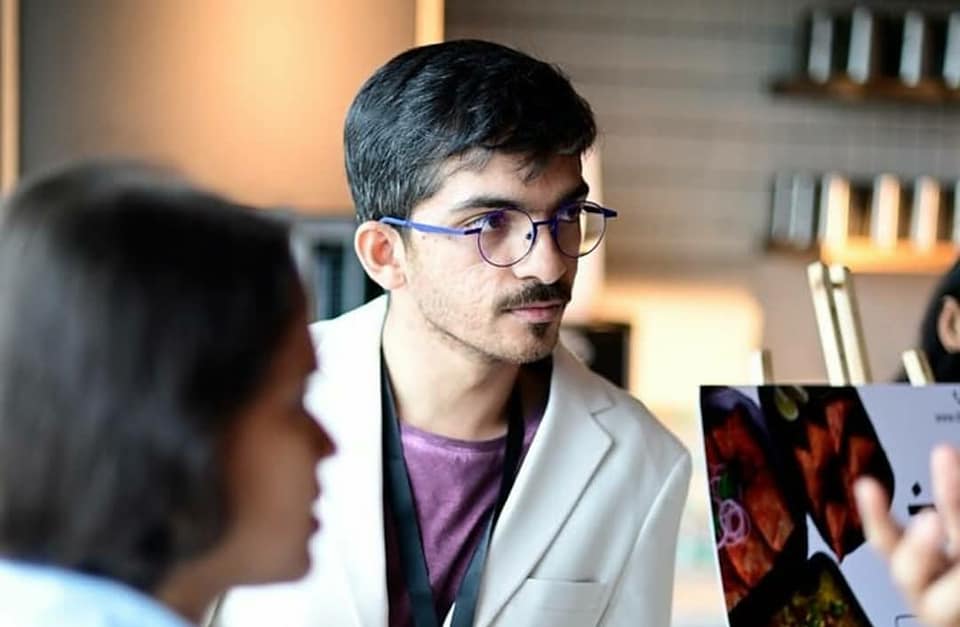
“I was sent to rural Mysuru, and I was selling chewing gum to people in lungis. I remember I would move about with this man, Lingaraju. The pay was good, and I was living my best life. But, I realised that this was not something that I wanted to do forever,” he says.
In the same year, Munaf applied for an Account strategist’s position at Google and got through. “I was so happy when I got the job. There was a 50 per cent pay cut involved (vis-a-vis the previous job), and my father wasn’t happy with that. But, I was enamoured by the possibility of being in that space, and I did not want to let the opportunity pass. I even made a presentation to explain to my father that this is what I wanted,” he says.
Finally, he moved to Hyderabad for his job, and within nine months, was transferred back to Mumbai with a promotion where he had a client-facing role. He then gradually moved up the ladder. And when TBK began informally, he was still working at Google. One chance discussion with a well-meaning colleague made Munaf take account of the situation.
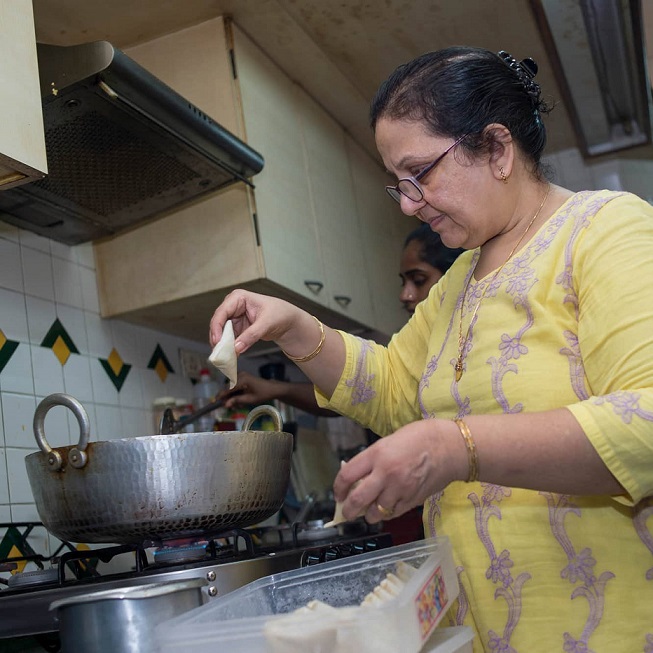
“He asked me what my plans with TBK were. I told him that I wanted to continue working at Google and perhaps move to Singapore or the UK. When he asked me about TBK, I didn’t have a clear answer. He told me that whenever a decision is made, I should think five years ahead instead of one. That helped me gain perspective,” says Munaf.
He realised that if TBK did not work out, he could shut shop and get on with his corporate career. But, with all the momentum that TBK was getting at the time, it would be unwise to ignore it. This is what led him to quit Google and direct his focus on TBK.
Although Munaf was enthusiastic about the prospect of reinventing The Bohri Kitchen as a full-fledged business, his parents were not happy.
“My father asked me if I quit google to sell samosas, and I started thinking if I had made a mistake,” recalls Munaf.
For three months, they did well, but things started going downhill. TBK set up a stall at the NH7 Weekender Music Festival in 2015, but the stall did not do well, and Munaf ended up losing Rs 50,000.
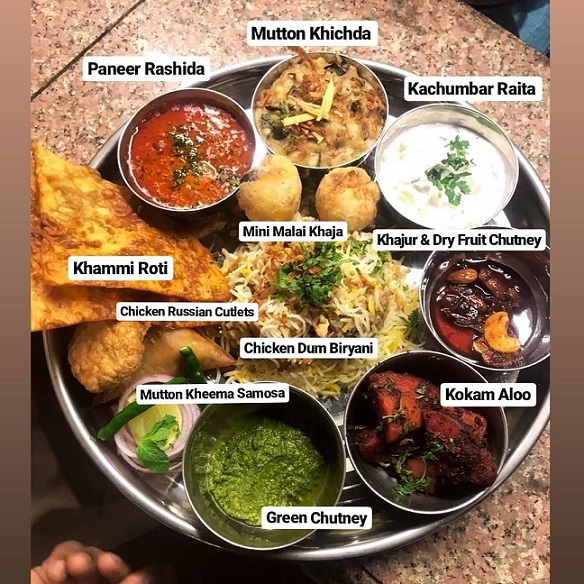
After that, he set up a delivery kitchen and began fulfilling orders through different delivery apps. But from the beginning of 2016, the ratings began to fall.
“I thought that I could replicate my mother’s food in delivery kitchens, but that was a wrong assumption. The people who were ordering were expecting the experience when they visited our home. I took every criticism to heart and had constant breakdowns. And in December 2016, my CA told me that I was bankrupt,” he recalls.
Munaf had almost given up on TBK and started looking for jobs when he got an unexpected call.
“Forbes India wanted to put me on the cover along with others for their ’30-under-30′ issue. That was a wake-up call and made me decide that I had to keep TBK alive and going,” says Munaf.
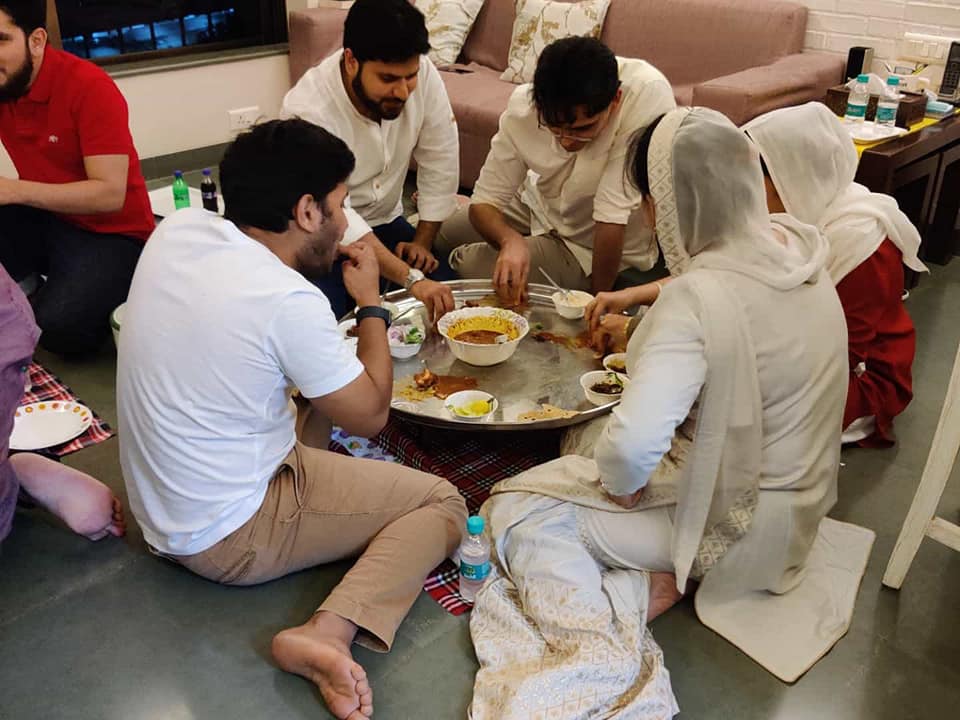
Munaf changed his approach to the business and started learning how to cook his mom’s food. Slowly and steadily, things started moving up. With seed funding from investors, he was able to scale his business and set up about five outlets, four of which were delivery kitchens. In August 2019, he went from 20 to 200 orders in a day, and he couldn’t be happier.
TBK in the Post-Pandemic World
Until the end of 2019, Munaf had standardised the food, created a proper supply chain to different corners in Mumbai, and planned to expand to Pune.
But, a lot has changed for TBK in the last few months. They made nearly Rs 35 lakh in August and September last year, but the cost of maintaining the five outlets was high. Although he was confident that they would receive Pre-Series A funding, no one signed the check.
“I realised that investors were not looking to put their money on a business that produced niche food and were seeking out businesses that were delivering multiple cuisines from the same kitchen. But, with COVID-19, the decision was taken away from my hands,” he says.
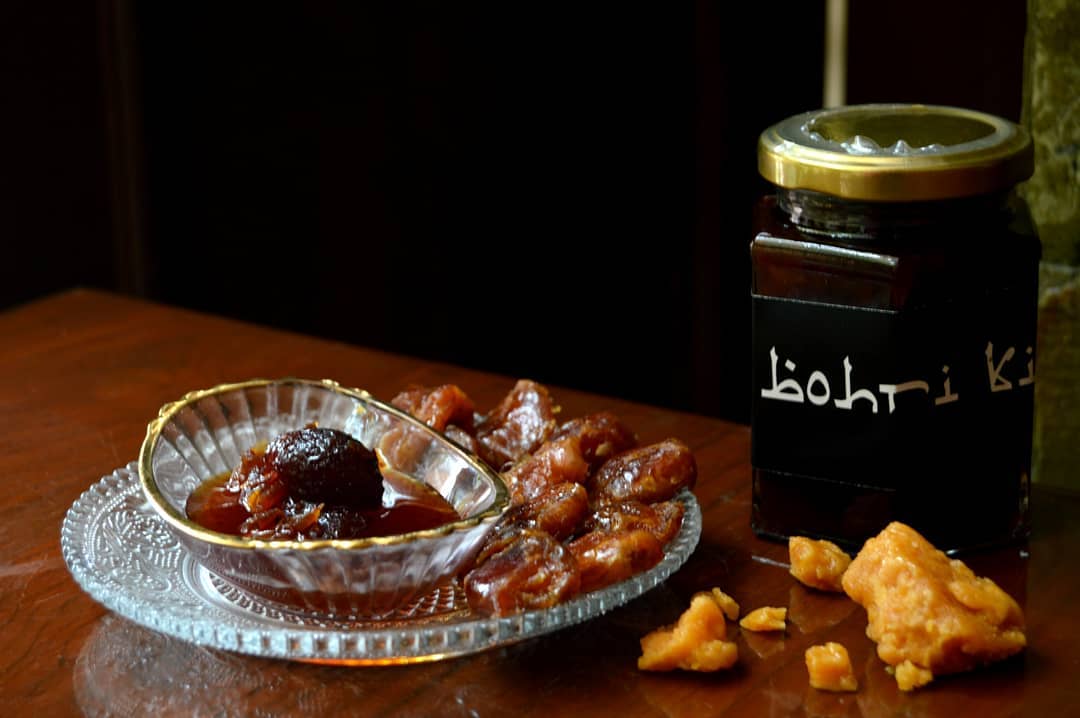
Like most businesses, TBK, too, had to scale down to survive. Three of the five outlets have been shut down, and they had to let go of over 50 per cent of their staff. Despite this setback, Munaf feels that this is a new phase and an opportunity for him to use the wealth of knowledge he’s gathered over the years.
Now, they plan on relaunching TBK around August-September. Scaling down their operations also gives them time to focus and do things well, emphasises Munaf. He also hopes to expand on the retail aspect where they bottle and sell more of their condiments like the khajoor chutney and pickles.
“The idea is to create something that cannot be replicated. I want to make Bohri food more relevant to everyone. I see us being unconventional and standing out. I want The Bohri Kitchen to be something that survives a lifetime and has the sense of community at its heart,” he says.
(Edited by Shruti Singhal)
Like this story? Or have something to share?
Write to us: [email protected]
Connect with us on Facebook and Twitter.
If you found our stories insightful, informative, or even just enjoyable, we invite you to consider making a voluntary payment to support the work we do at The Better India. Your contribution helps us continue producing quality content that educates, inspires, and drives positive change.
Choose one of the payment options below for your contribution-
By paying for the stories you value, you directly contribute to sustaining our efforts focused on making a difference in the world. Together, let’s ensure that impactful stories continue to be told and shared, enriching lives and communities alike.
Thank you for your support. Here are some frequently asked questions you might find helpful to know why you are contributing?


This story made me
-
97
-
121
-
89
-
167













